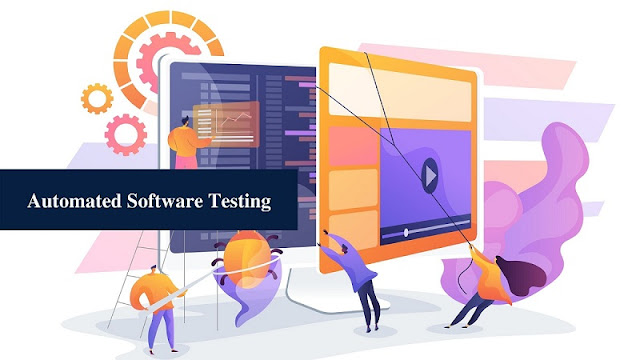Robotic Process Automation (RPA) - Advantages of RPA in Software Testing
Software testing ensures that a
software/application is free of bugs, glitches, or any other errors so that it
offers users a great experience.
The Future of software
testing in 2021 – Many of the automation tools are
invented to make software testing more efficient and better performance and bug
free applications in IT industry. In that one of the most popular automation
tool is Robotic Process Automation (RPA) is one such technology that has
automated processes in diverse fields over the years. And, with the benefits it
offers, it is expected to find more widespread adoption in the years to come.
What is Robotic Process Automation?
Robotic ProcessAutomation is the
technology where business process can be put in automation technology and
instructing a machine or robot to execute repetitive manual tasks. The bots in
RPA are capable of emulating human activities to perform rule-based tasks.
The working of RPA Based System Steps Include
·
RPA defines a series of steps for a process to be performed by a
robot.
·
The process is converted into the software with the help of
codes.
·
The robot executes these steps for a specific process.
Role of RPA in Software Testing
·
The demand for new releases, product offerings, and service
excellence requires pervasive process automation that minimizes errors and
optimizes processes. These needs have paved the path for the implementation of
RPA in end-to-end testing to minimize the turnaround time, enhance efficiency,
and provide more accurate outcomes.
·
The traditional QA process involved coders scripting testing
tasks. This was a time-consuming process. RPA facilitates automated scripts
that results in superior QA which is 70% faster for tests and test-related
activities. (Source: Automation Anywhere)
·
RPA offers an agile and automated QA and testing strategy that
facilitates rapid releases without compromising on quality to meet the demands
such as shorter time to market and high-velocity deployments.
·
RPA deployments may include a heterogeneous mix of applications,
components, and technologies that run on multiple operating systems. Therefore,
open-source automation testing tools such as Selenium, Sikuli, AutoIt, Robot
class, etc. can be lever-aged in end-to-end testing along with RPA to
streamline and accelerate the testing process.
·
The established RPA testing strategy goes through various
stages. Firstly, the creation of test data followed by triggering the bot and
finally validation of the business process.
Advantages
of RPA in Software Testing:
·
RPA limits start to finish testing by organizing and teaming up
the APIs.
·
It empowers fulfilling the current client needs for creating
quicker and better yields.
·
RPA in software testing minimizes errors and produces
high-quality products with minimal efforts.
·
Programming abilities are not needed by groups for RPA based
testing.
·
The codes implemented can be reused.
·
It helps bring agility across functions and industries.
·
Robotic Process Automation facilitates multiple application
testing.
·
Minimizes human errors encountered in continuous manual or
automation testing.
·
It resolves the issues in critical test automation.
·
It supports a web-based, legacy, desktop, or mobile application
since it is platform-independent.
·
It encourages a versatile testing climate by permitting equal
execution by allocating a virtual workforce at any stage.



Comments
Post a Comment